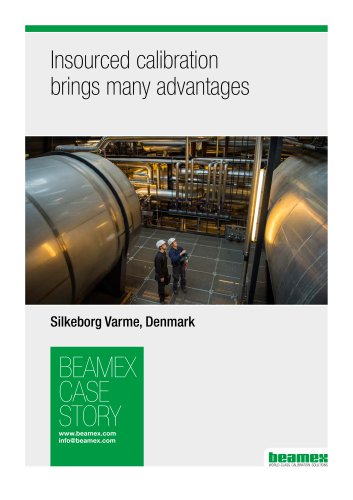
White paper - 2015 revision of ISO9001 - what are the changes and how do they affect calibration processes?
1 /
5Pages
Catalog excerpts
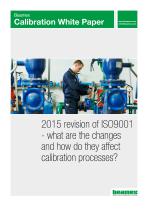
Calibration White Paper calibration processes? WORLD-CLASS CALIBRATION SOLUTIONS
Open the catalog to page 1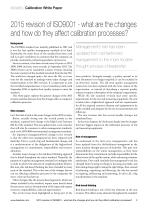
BEAMEX Calibration White Paper 2015 revision of ISO9001 - what are the changes and how do they affect calibration processes? Background The ISO9001 standard was initially published in 1987 and it was the first quality management standard of its kind. Essentially, the main focus of the standard has been, and still is, to give confidence to customers that the company can provide consistently-conforming products and services. Since its creation, it has been revised every 6-8 years: in 1994, 2000, 2008 and now, most recently, in September 2015. The 2008 revision can be considered a minor...
Open the catalog to page 2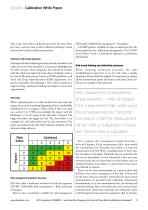
BEAMEX Calibration White Paper This is also what affects calibration processes the most. First, let’s take a generic look at what risk-based thinking is then discuss how it affects calibration processes. General on risk-based approach Although risk-based thinking has been already included in the earlier revisions of the standard, it is very much highlighted in the 2015 revision. Some companies may already be familiar with the risk-based approach from other standards, such as the Good Manufacturing Practices (GMP) guidelines and Food and Drug Administration (FDA) regulations. It is good to...
Open the catalog to page 3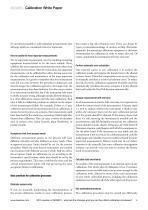
BEAMEX Calibration White Paper it’s not always possible to add redundant measurements into all loops which are considered critical or important. How to handle the most important measurements For an important measurement, start by installing measuring equipment known/found to be the most reliable. Next, calibrate the most important measurements more often than those that are less critical. After the risk analysis, less important measurements can be calibrated less often, leaving more time for the calibration and maintenance of the most important measurements. It is good to remember that the...
Open the catalog to page 4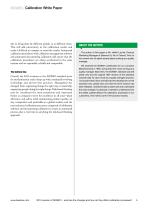
BEAMEX Calibration White Paper due to being done by different people, or at different times. This will add uncertainty to the calibration results and make it difficult to compare or trend the results. Automated calibration procedures with calibration management software and automated documenting calibrators will ensure that the calibration procedures are always performed in the same manner and are repeatable, reliable and comparable. The bottom line Overall, the 2015 revisions to the ISO9001 standard strive for modernization and to keep up with continually-evolving technology and proven...
Open the catalog to page 5All Beamex catalogs and technical brochures
-
Brochure - Software and services
44 Pages
-
MC6-Ex
16 Pages
-
Beamex smart reference p
2 Pages
-
Beamex MC2-IS
12 Pages
-
MCS200
18 Pages
-
Calibration World spring 2016
36 Pages
-
Brochure - Workshop Equipment
54 Pages
-
Brochure - Field Equipment
116 Pages
-
Brochure - Calibration Solutions
36 Pages
Archived catalogs
-
Calibration World 2-2007
24 Pages
-
Calibration World Issue 1-2007
24 Pages
-
Calibration World Issue 1-2006
24 Pages
















